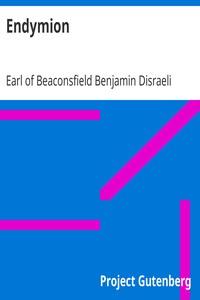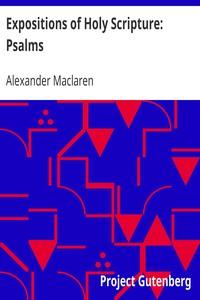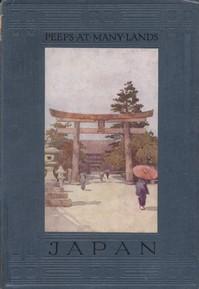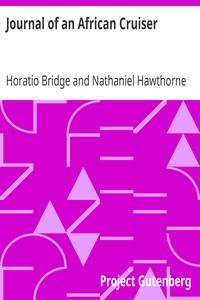Read this ebook for free! No credit card needed, absolutely nothing to pay.
Words: 87279 in 29 pages
This is an ebook sharing website. You can read the uploaded ebooks for free here. No credit cards needed, nothing to pay. If you want to own a digital copy of the ebook, or want to read offline with your favorite ebook-reader, then you can choose to buy and download the ebook.


: The Poet's Poet : essays on the character and mission of the poet as interpreted in English verse of the last one hundred and fifty years by Atkins Elizabeth - Poetry; English poetry History and criticism; American poetry History and criticism
Apparent futility of verse dealing with the poet.--Its justification.--The poet's personality the hidden theme of all verse,--The poet's egotism.--Belief that his inspirations are divine.--Belief in the immortality of his poems.--The romantic view that the creator is greater than his creations.--The poet's contempt for uninspired men.--Reaction of the public to the poet's contempt.--Its retaliation in jeers.--The poet's wounded vanity.--His morbid self-consciousness.--His self-imposed solitude.--Enhancement of his egotism by solitude.
View that genius results from a happy combination of physical conditions.--The poet's reluctance to embrace such a theory.--His heredity.--Rank.--Patricians vs. children of the soil.--His body.--Poetic beauty.--Features expressing alert and delicate senses.--Contrary conception of poet rapt away from sense.-- Blindness.--Physique.--Health.--Hypersensibility of invalids.-- Escape from fleshly bondage afforded by perfect health.--The poet's sex.--Limitations of the woman poet.--Her claims.--The poet's habitat.--Vogue of romantic solitude.--Savage environment.--Its advantages.--Growing popularity of the city poet.--The wanderer.-- The financial status of the poet.--Poverty as sharpener of sensibility.--The poet's age.--Vogue of the young poet.--Purity of youthful emotions.--Early death.--Claims of the aged poet.-- Contemplation after active life.
Reticence of great geniuses regarding inspiration.--Mystery of inspiration.--The poet's curiosity as to his inspired moments.--Wild desire preceding inspiration.--Sudden arrest rather than satisfaction of desire.--Ecstasy.--Analogy with intoxication.--Attitude of reverence during inspired moments.--Feeling that an outside power is responsible.--Attempts to give a rational account of inspiration.--The theory of the sub-conscious.--Prenatal memory.--Reincarnation of dead geniuses.--Varied conceptions of the spirit inspiring song as the Muse, nature, the spirit of the universe.--The poet's absolute surrender to this power.--Madness.--Contempt for the limitations of the human reason.--Belief in infallibility of inspirations.--Limitations of inspiration.--Transience.--Expression not given from without.--The work of the poet's conscious intelligence.--Need for making the vision intelligible.--Quarrel over the value of hard work.
The poet's reliance upon feeling as sole moral guide.--Attack upon his morals made by philosophers, puritans, philistines.--Professedly wicked poets.--Their rarity.--Revolt against mass-feeling.--The aesthetic appeal of sin.--The morally frail poet, handicapped by susceptibility to passion.--The typical poet's repudiation of immorality.--Feeling that virtue and poetry are inseparable.--Minor explanations for this conviction.--The "poet a poem" theory.--Identity of the good and the beautiful.--The poet's quarrel with the philistine.--The poet's horror of restraint.--The philistine's unfairness to the poet's innocence.--The poet's quarrel with the puritan.--The poet's horror of asceticism.--The poet's quarrel with the philosopher.--Feeling upon which the poet relies allied to Platonic intuition.
Threefold attack upon the poet's religion.--His lack of theological temper.--His lack of reverence.--His lack of conformance.--The poet's defense.--Materialistic belief deadening to poetry.--His idealistic temper.--His pantheistic leanings.--His reverence for beauty.--His repudiation of a religion that humbles him.--Compatibility of pride and pantheism.--The poet's nonconformance.--His occasional perverseness.-- Inspiring nature of doubt.--The poet's thirst for God.--The occasional orthodox poet.
The poet's alleged uselessness,--His effeminacy.--His virility.--The poet warrior.--Incompatibility of poets and materialists.--Plato'scharge that poetry is inferior to actual life.--The concurrence of certain soldier poets in Plato's charge.--Poetry as an amusement only.--The value of faithful imitation.--The realists.--Poetry as a solace.--Poetry a reflection of the ideal essence of things.--Love of beauty the poet's guide in disentangling ideality from the accidents of things.--Beauty as truth.--The poet as seer.--The quarrel with the philosopher.--The truth of beauty vs. cold facts.--Proof of validity of the poet's truth.--His skill as prophet.--The poet's mission as reformer.--His impatience with practical reforms.--Belief in essential goodness of men, since beauty is the essence of things.--Reform a matter of allowing all things to express their essence.--Enthusiasm for liberty.--Denial of the war-poet's charge.--Poets the authors of liberty.--Poets the real rulers of mankind.--The world's appreciation of their importance.--Their immortality.
Denial that the views of poets on the poet are heterogeneous.--Poets' identity of purpose in discussing poets.--Apparent contradictions in views.-Apparent inconsistency in the thought of each poet.--The two-fold interests of poets.--The poet as harmonizer of sensual and spiritual.-- Balance of sense and spirit in the poetic temperament.--Injustice to one element or the other in most literary criticism.--Limitations of the poet's prose criticism.--Superiority of his critical expressions in verse.--The poet's importance.--Poetry as a proof of the idealistic philosophy.
INDEX
THE EGOCENTRIC CIRCLE
Most of us, mere men that we are, find ourselves caught in some entanglement of our mortal coil even before we have fairly embarked upon the enterprise of thinking our case through. The art of self-reflection which appeals to us as so eminent and so human, is it after all much more than a vaporous vanity? We name its subject "human nature"; we give it a raiment of timeless generalities; but in the end the show of thought discloses little beyond the obstreperous bit of a "me" which has blown all the fume. The "psychologist's fallacy," or again the "egocentric predicament" of the philosopher of the Absolute, these are but tagged examples of a type of futile self-return which comes more or less to men of all kinds when they take honest-eyed measure of the consequences of their own valuations of themselves. We pose for the portrait; we admire the Lion; but we have only to turn our heads to catch-glimpse Punch with thumb to nose. And then, of course, we mock our own humiliation, which is another kind of vanity; and, having done this penance, pursue again our self-returning fate. The theme is, after all, one we cannot drop; it is the mortal coil.
But what are we to say when, on opening almost any book of comparatively recent verse, we find, not the self-forgetfulness attendant upon an ineffable vision, but advertisement of the author's importance? His argument we find running somewhat as follows: "I am superior to you because I write poetry. What do I write poetry about? Why, about my superiority, of course!" Must we not conclude that the poet, with the rest of us, is speeding around the hippodrome of his own self-centered consciousness?
Indeed the poet's circle is likely to appear to us even more viciousthan that of other men. To be sure, we remember Sir Philip Sidney's contention, supported by his anecdote of the loquacious horseman, that men of all callings are equally disposed to vaunt themselves. If the poet seems especially voluble about his merits, this may be owing to the fact that, words being the tools of his trade, he is more apt than other men in giving expression to his self-importance. But our specific objection to the poet is not met by this explanation. Even the horseman does not expect panegyrics of his profession to take the place of horseshoes. The inventor does not issue an autobiography in lieu of a new invention. The public would seem justified in reminding the poet that, having a reasonable amount of curiosity about human nature, it will eagerly devour the poet's biography, properly labeled, but only after he has forgotten himself long enough to write a poem that will prove his genius, and so lend worth to the perusal of his idiosyncratic records, and his judgments on poetic composition.
Free books android app tbrJar TBR JAR Read Free books online gutenberg
More posts by @FreeBooks

: Endymion by Disraeli Benjamin Earl Of Beaconsfield - England Social life and customs 19th century Fiction


: Expositions of Holy Scripture: Psalms by Maclaren Alexander - Bible. Psalms Commentaries Christianity


: Peeps at Many Lands: Japan by Finnemore John Du Cane Ella Illustrator - Japan Description and travel




